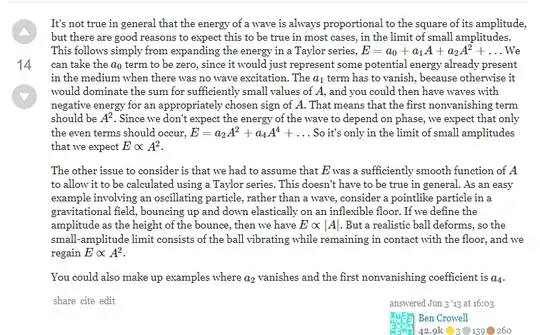In reference to the question, "Why is energy in a wave proportional to amplitude?" Ben Crowell answered with the answer attached. The original post is linked here. I did not respond to the original post because I am not able to, and I cannot contact Ben Crowell directly.
In his explanation he says that since the energy of the wave doesn't depend on phase, it should be expected that only even terms should occur in the expansion. Assuming we're modeling as a harmonic oscillator (which is why I think there's a phase independence), why would only the even terms occur in this expansion because of phase independence?
